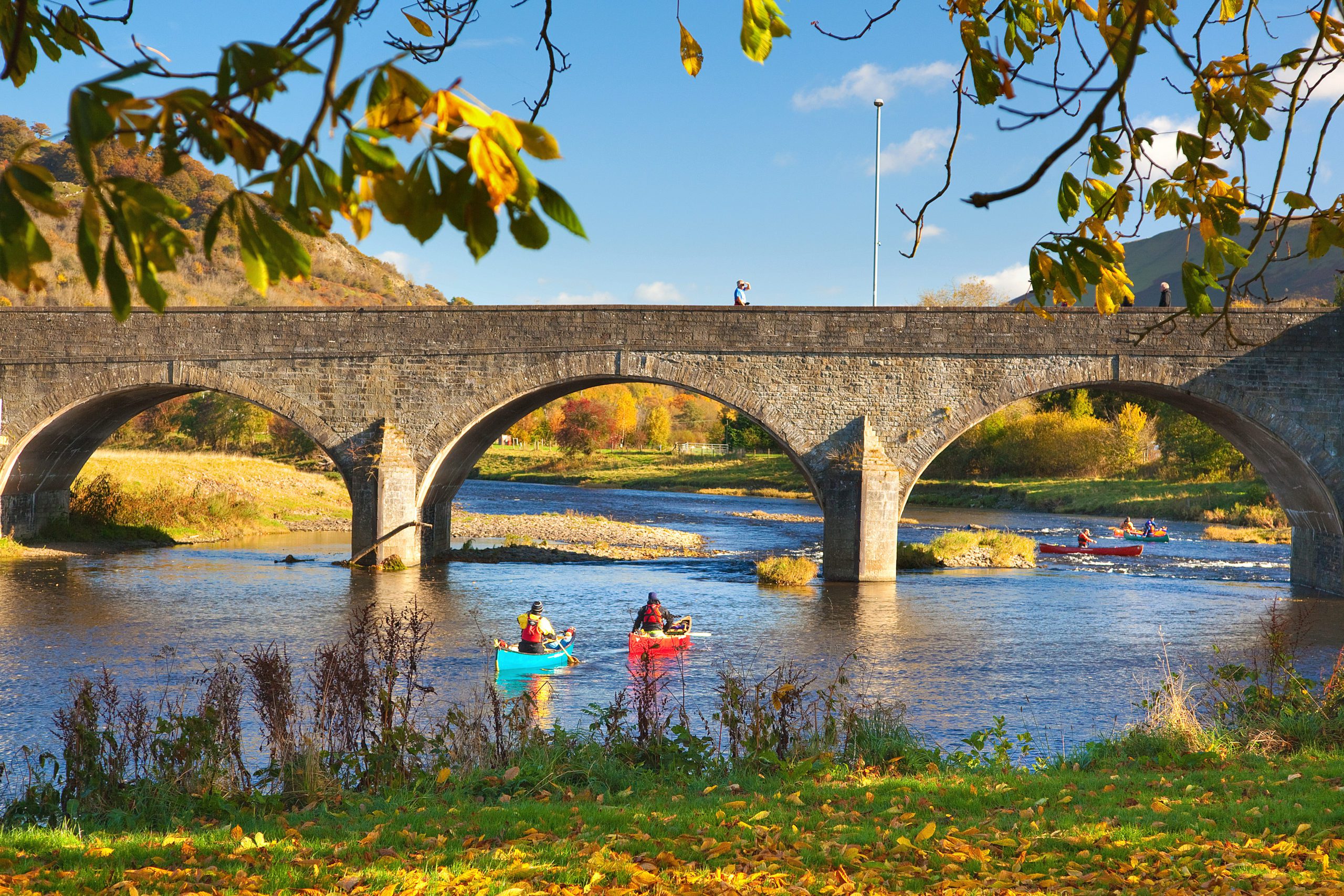
Preservation charity The Wildlife Trusts stated it is deeply worried that the River Wye’s main status has actually been reduced to ‘unfavourable-declining’, by the Federal government’s consultant, Natural England (on 30 Might). The organisation’s brand-new evaluation reveals that the much-loved river, which streams for 155 miles from mid-Wales to the Severn estuary in England, has actually experienced decreases in crucial types such as the Atlantic salmon and white-clawed crayfish.
The brand-new evaluation covers the parts of the Wye that circulation through England. When it was last examined in 2010 just 1 of the 7 English systems was ‘beneficial’ and the rest were ‘damaging recuperating’, which suggests that actions underway might be anticipated to enhance the condition with time. Nevertheless, a brand-new interim evaluation out today reveals that this has actually not occurred– and now the Wye’s condition is even worse, not much better. The outcomes are substantial sufficient to reclassify all 7 systems of the Wye, in addition to all 4 systems of its tributary the River Lugg, as ‘damaging decreasing’. The evaluation on both the Wye and the Lugg record decreases in salmon and crayfish, with decreases in essential water plants likewise seen on the Wye.
Whilst the evaluation has actually not taped a failure versus water quality targets on the Wye– though the water quality targets were stopped working on the Lugg– phosphate is close to its limitations at some tracking points. In current months, issues about nutrient contamination from extensive chicken systems, animals farming and from sewage have actually intensified on both sides of the Welsh-English border, with phosphate and other contaminants sustaining algal flowers that turn the river into ‘pea soup’.
As the Secretary of State for environment, Th̩r̬se Coffey MP, assembles a River Wye roundtable today to find out about the problems, consisting of the incredibly high varieties of chickens in the catchment (estimateD put the number at over 24 millionРthe very first algal flowers of the year are currently appearing. The brand-new evaluation suggests that without immediate assistance and suitable management the river will never ever reach a beneficial or recuperating condition.
All The Wildlife Trusts along the path of the River Wye are requiring:
- Welsh and English Federal governments to position an instant policy moratorium on any brand-new or prolonged extensive animals production systems (poultry, livestock and pig) in the Wye catchment. This ought to consist of all applications that are presently under factor to consider in the preparation system plus the sheds that have actually been authorized however not yet developed. A comparable moratorium should be put on the building of any brand-new Anaerobic Digestors, unless their outputs are nutrition neutral.
- Natural Resources Wales, the Environment Company and regional authorities should release all the water quality information and manure management details they hold– and after that step up to implement the law, ending the scandal of so-called ‘risk-based guideline’ (which efficiently suggests self-regulation). An absence of resourcing for assessments has actually suggested that some farmers and public utility have actually had the ability to contaminate with impunity.
- Regulators, grocery stores and farmers to deal with regional stakeholders and Wildlife Trusts to develop a shared vision for stopping farm contamination in the River Wye catchment, with clear objectives for a healthy river where nature is brought back and which can be delighted in by the individuals who check out and live along it. Farmers in the catchment should be rewarded for supplying public products and made it possible for to diversify into regenerative and sustainable techniques of production which trigger less contamination.
Joan Edwards, director of public affairs at The Wildlife Trusts, states:
” That the Wye remains in even worse condition now will come as not a surprise to individuals that enjoy and live near it. However this brand-new admission represents a stunning failure by the companies and authorities in Wales and England that are expected to safeguard this when gorgeous river.
” Broader research study reveals that farm contamination is the primary reason for its decrease– that’s why the authorities should implement the law anywhere the reasons for contamination are clear. It’s time to avoid more chicken sheds from being developed and make sure that all farmers are rewarded for nature-friendly, cleaner food production techniques.”
If the condition of a designated website has actually decreased, Natural England can assist the landowner to do something about it, encouraging or needing that particular management activities are performed to enhance the website’s status. However when it comes to a river, a number of the pressures are not within a river owner’s control– for instance, contamination can originate from throughout the catchment, so the capability to work just with the website owners is not enough to safeguard the river from damage.
Jamie Audsley, president of Herefordshire Wildlife Trust, stated: “Present techniques have actually stopped working to keep the River Wye in a healthy condition. What we now require to see is a cross federal government strategy to bring the Wye back into a beneficial condition. The Wye needs to be a river where salmon and otters prosper and individuals can securely swim. The strategy will require to include Federal governments, regulators, farm companies and others, and make sure a constant method throughout England and Wales.”
The Wildlife Trusts are assembling a Wye Catchment roundtable to make sure concrete action on 17 th July. Regulators and choice makers from both England and Wales will fulfill to talk about enhancing the health of the Wye.